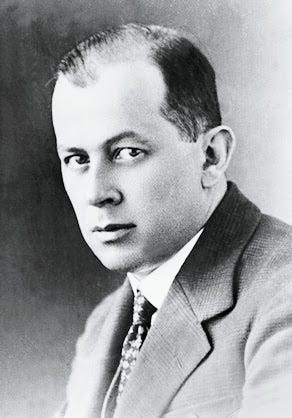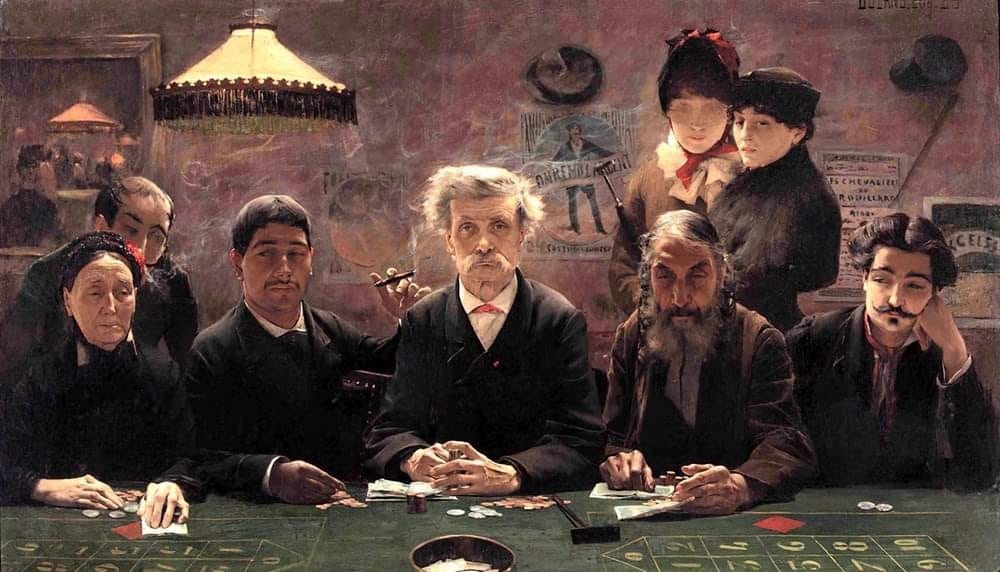The little me
Don’t think that I’m a smart person, alright? That would be a mistake on your part
Oh, hello, Fish Eater. A warm welcome to you, Valued Reader, from Tomasz Goetel writing here.
Don’t think that I’m a smart person, alright? That would be a mistake on your part. Any given Sunday, I could sit and drink Canadian Club whiskey and pretend that I’m in Canada. That’s how dumb I am.
I… I… I…
I am firmly convinced that the only antidote that can make the Reader forget the everlasting I’s which the author proposes to use is perfect sincerity (Stendhal).
“Poland—that is to say, nowhere” (Alfred Jarry). I was born in a country that ceased to be. Known in Polish vernacular as “pe-er-el” (PRL, or Polska Rzeczpospolita Ludowa), the communist Polish Peoples’ Republic was the predecessor of today’s Republic of Poland. In 1989, PRL ceased to be because its one-and-only ruling party committed hara-kiri.
I am ‘a’ (and ‘the’) grandson of Ferdynand Goetel. My paternal grandfather was a splendid political writer. Contrary to what encyclopaedias and textbooks say about him, he was first and foremost a political writer, and then, and only secondarily, a fiction writer, maybe. My granddad was forced to leave Poland at the end of the World War II due to his involvement with the discovery by the Nazi Germans of the remnants of ‘Katyn massacre’ perpetrated by the Soviet Russkies. For the truth about Katyń everything was taken from him. Ferdynand Goetel died in exile in London twelve years before I was born. Not only was he exiled from his fatherland and family (his wife, Halina, and children, Roman and Elżbieta), but he spent his final years lonely, destitute, and blind. And in London, one of the cruelest cities on the blue ball. How very, very sad! I wish I had been there, I would have been able to look after him, keep him company, and hold his hand at the end. How very, very sad.

Oh, let’s try to stick to the bright side, shall we? I grew up in the loving arms of the Polish Roman Catholic Church and Stanisław Lem. That was in the time of “Matka Polka”, “Nowa Huta”, and Saint John Paul II.
As a boy, I was probably rather strongly synesthetic or ideasthetic, or both. I probably, a little less strongly, still am. Those used to be my secrets, you know, but today I don’t care.
At fourteen years of age, I was the principal subject in the reproduction of the Asch experiment, which premise and result, when all was done and dusted, were explained to me. Tested negative, I was told. A decade ago, when I was in my forties, I used to suppose that my Asch-experience in adolescence shaped me for years to come. I became and remain a person who is “sensitive” (my favourite euphemism) to both conformity and authority even more than he is a slave to his natural endowment with a disagreeable personality. Today, I see Mr. Asch and his experiments (as well as Milgram’s, BTW) as toxic hogwash straight outta a CIA laboratory, but that’s another story.
Moving on. High school. I was no longer willing to put my hand up to be allowed to go to the bathroom. It was then that I decided I had no choice but to become my own teacher. My matura came about in 1990. Poland changed “the system”and my eyes saw the glory of the “everything new (that) is better than everything old”, as that fabulous Jewish commie Bertolt Brecht intoned half a century earlier. Nobody back then, in the early 90s, could see the demon in democracy and even if they saw it, they’d keep their mouths shut.1 Much excitement was in the air. The Berlin Wall crumbled and Germany “re-united” (I’m being ironic here, as everyone knows the East Germany dissolved and the West germany took over the land and its people, expanding therefore its own occupation by the military of the US federal government). The Soviet Union expired. The great Rumanian capo di tutti capi Ceaușescu with his trouble-and-strife went face down into the dirt in front of the Rumanian firing squad. Sadam invaded Kuwait. The Pixies put out Bossanova, Cocteau Twins Heaven Or Las Vegas, and Rage Against The Machine were still two years away from their first album. And I was in my salad days, green in judgement (like Shakespeare’s Cleopatra), but I thought I was a grown man.
I left my parents’ home as soon as I’d reached legal drinking age. To pay the rent, I spent a couple of lively years working in Polish casinos which had just opened their doors, on the account of the new Polish “democracy”, for the first time since their closure in 1939. A ridiculously high salary, ten times higher than my monthly rent. Not a care in the world. But the lively times came to an end and I fled from my country when the obligatory-at-the-time army service started knocking on my door. To leave Poland was not the only option; the two other possible ways of being exempt from the military two-step consisted of: 1. Putting myself in front of a military commission in order to falsely declare myself a homosexual, 2. Going to a university. Both options were (equally gay and therefore) unthinkable to me, they belonged to the “I’d rather die” category.
And so a suitcase was packed and its owner grabbed it and ran away from the new Poland via Aeroflot to Sheremetyevo. A friend offered me a hiding place, and a job, in Moscow; I worked in casinos owned by Cyprus gangsters serving customers who were mostly Chechen and Georgian gangsters. From Russia, I made my way to the Caribbean. Then Romania, then Belgium, then the US, then Thailand, then Switzerland, then Thailand again. An emigrant drifter whose wife is a drifter’s life— since 1993, I never returned to live in Poland. Well, I’ve always lived as though I was a fan of living in a hotel. That is not a bad thing—a homeless man is free, even though having to pay rent might seem like an unpleasant and ruinous necessity. But I never forgot where I came from—for a lifetime (so far), I have been an incorrigible Pole. Bóg, Honor, Ojczyzna? Well, what else is there. Am I a Polish patriot? Perhaps, possibly, probably. Absent Polish patriots, we are many.
For fifteen years, from Moscow to Miami, table games on casino floors were my university. I went to work at roulette tables the same way other young men go to work on oil rigs. And just as they did, I made small fortunes and never learned to keep them. In those years, I made myself extra wages counting cards at blackjack and pulling money out of my British friends’ sky-rockets at poker.
For twenty years, yoga mats in yoga studios were the place of my postgraduate studies. My marriage with hathayoga ended in divorce in 2020.
For a decade, Thailand’s girlie bars and go-go clubs were my secret gardens. Aided by strip-me-naked inebriation and hashish Rausch, I’d bend spacetime, temporarily escape gravity, smell the flowers of life majority of others wold consider to be despicable. Oh, the magical rotating of a primordial time in which soul and world fused with each other in rhythmically uninterrupted, mutually consecutive embraces (Klages). Lust is the quest of the flesh for the unknown, just as Cerebration is the spirit’s quest for the unknown (Valentine de Saint-Point). We, in body and mind, had some lively times.2
Back to reality, for five years, I submerged myself into a wellness clinic in Phuket called Atmanjai. With a job title of a detox counsellor, I was a part of a team that would offer Dr. Bernard Jensen’s programs to adults from all regions of the world. In a complex work environment, a challenging job. Its particularly unforgettable, to me, aspect: thousands of conversation hours with hundreds of persons who appear as successful, educated, upbeat, well-off individuals—but then a vast majority of those voluntarily admit feeling chronically sad, overwhelmed, vulnerable, lonely, unhealthy and unhappy. Heartbreaking. On a less serious note, one of the specialties of Atmanjai have been very good colon therapies. Colonic therapeutics are ‘in’ nowadays, and you’d be surprised if you knew what comes out of civilised, city-dwelling citizens’ rectums. Oh, the things I’ve seen, in a word: transformative.
During a long winter a few years ago, I got lost among Switzerland’s many masterpiece collections of Christian religious icons. Zurich, Basel, Lucerne, Geneva, Bern, Fribourg, Lausanne. I gazed at everything with stupid eyes (Stendhal). But then came a moment when suddenly I found myself back at the feet of The One From Nazareth where I sat as a boy. Now on my fiftieth birthday, I want to stand with the Christian Faith in impecuniosity.
Nowadays: ‘ars moriendi’ and ‘amicus morti’
“A society which shuns the dying must have an incomplete philosophy.”—C. Saunders
“(. . . ) when a country—a society, a civilization—comes to legalize euthanasia, it loses, in my eyes, any right to respect.”—Michel Houellebecq
“I will not give a lethal drug to anyone if I am asked, nor will I advise such a plan.”—Hippocratic Oath
“He that sinneth before his Maker, let him fall into the hand of the physician.”—Ecclesiasticus 38:15, KJV
Forty years of being busy with my own betrayal of my own ideals has been enough.
My humble pedestrian study3 and my rather serious practical interests revolve around asking questions that mirror those asked by Ivan Illich before me: “Is there still an autonomous self capable of the act of dying?”, how can I find willingness to accept the inevitable, find strength in the beauty of memories, and take leave of this world consciously? How can I, in a sober state and without fear, surrender to the Will of the Creator calling me back to Himself when He decided that “my” time is up?
I’m pursuing an interest in:
a good death, or ‘ars moriendi’, or ‘amicus mortis’—and NOT legalized ‘euthanasia’;
non-medical palliative care directed toward persons with the so-called terminal diseases;
hospice care for persons who do not need or want the resources of a large hospital and who cannot be cared for at home, and what, if anything, can be done to not become preoccupied with financial considerations at the expense of other factors when evaluating hospice care;
companionship to old men.
If any of my Dear Readers is pursuing the same, or similar, interests, please contact me by email at tomaszgoe@protonmail.com—I’m hoping a conversation could ensue.
And here I must finish this piece of writing.
There are no dead around; only the memory of lives that are not there. The ordinary person suffers from the inability to die. In an a mortal society, the ability to die, that is the ability to live no longer, depends not on culture but on friendship. The old Mediterranean norm that a wise person needs to acquire and treasure, an amicus mortis, one who tells you the bitter truth and stays with you to the inexorable end, calls for revival.4
The “demon in democracy” deserves a separate investigation, but, FWIW, if we fast-forward to the first two decades of the current millennium (anytime from 9/11 onwards), a reader fond of the “mainstream” may look into The Demon in Democracy: Totalitarian Temptations in Free Societies, a 2016 book by Ryszard Legutko.
A more courageous reader, perhaps equipped with a VPN, might want to look into Gianfranco Sanguinetti. The latter would say that “modern false-flag terrorism was first experimented with by the secret services in Italy from 1969 onwards, over a period of fifteen years, on the flesh of Italians, as is now universally admitted and proven by historians and court judgments.” And that “Thanks to terrorism, the State and its political beneficiaries magically become “good” because, having sacrificed a small portion of the population, they can proudly and virtuously set themselves up as protectors of the remaining population. Terrorism thus becomes the philosopher’s stone finally found, which sanctifies power, edifies politicians and legally whitewashes the mafia-like protection of subjects to which every state aspires. (. . .) The true motives and aims of all terrorism, and its usefulness, are always to be found in its results. However, it is not expected that the people will see through this and rebel against the deception and deception of the official narratives of the crimes of the State. (My own machine translation from French and Italian, from Mr. Sanguinetti’s articles and books, in particular the 15-minute read posted here).
An updated (as of March 2024) reflection: For the past 20 or so years, the so-called democratic West has “ceased to be democratic, yet professes to worship democracy as a sacred cause independent of reality”, hasn’t it? The collective West is possessed. Read more here.
“To be drunken for ever: that is the only thing which matters! If you would escape Time’s bruises and his heavy burdens which weigh you to the earth, you must be drunken.
But how? With the fruit of the wine, with poetry, with virtue, with what you will. But be drunken. And if, sometime, at the gates of a palace, on the green banks of a river, or in the shadowed loneliness of your own room, you should awake and find intoxication lessened or passed away, ask of the wind, of the wave, of the star, of the bird, of the timepiece; ask all that flies, all that sighs, all that revolves, all that sings, all that speaks — ask of these the hour. And the wind, the wave, the star, the bird, and the timepiece will answer you: “It is the hour to be drunken! Lest you be martyred slaves of Time, intoxicate yourselves, be drunken without cease! With wine, with poetry, with virtue, or with what you will.””
Especially the study of what has been said about the end of human life. I want to read and understand whatever I can find in the pre-Vatican II teachings of the Roman Catholic Church, I’m also looking at the works offered by Cecily Saunders, Ivan Illich, Philippe Ariès, C. G. Jung, Marie-Louise von Franz, Geoffrey Gorer, and several others.
Words of my beloved Ivan Illich, Death Undefeated. In 1974, Illich spoke of the increasing difficulty a person experiences in attempting not to miss the hour of one’s death because of medicalisation. However, in 1995 he sees the results of an even more sinister reality: since the introduction of ‘systems’, people’s very self perception has been changed (e.g., education and medicine are organised as systems, interlocked with military, economic and other systems.) A person experiences himself or herself now as a ‘life’ which is under professional management. Whereas medicalisation spelled dependence, systems’ analytical concepts spell disembodiment. Here.







